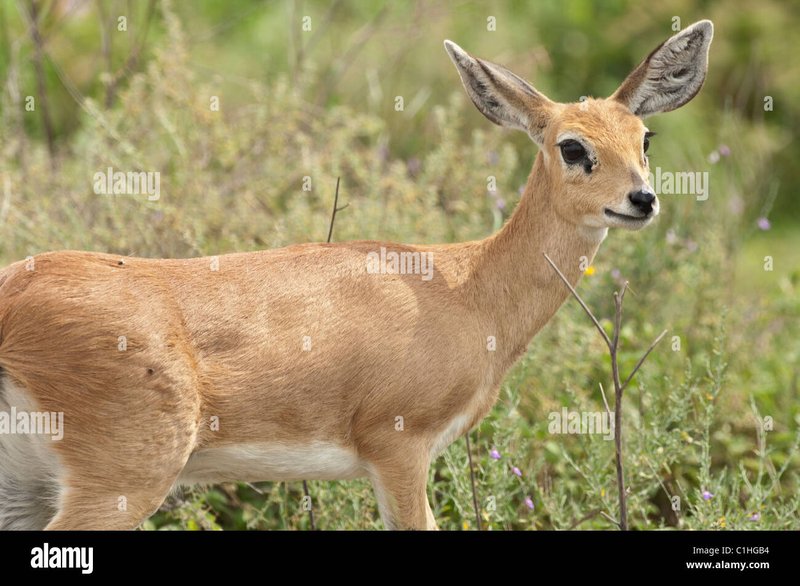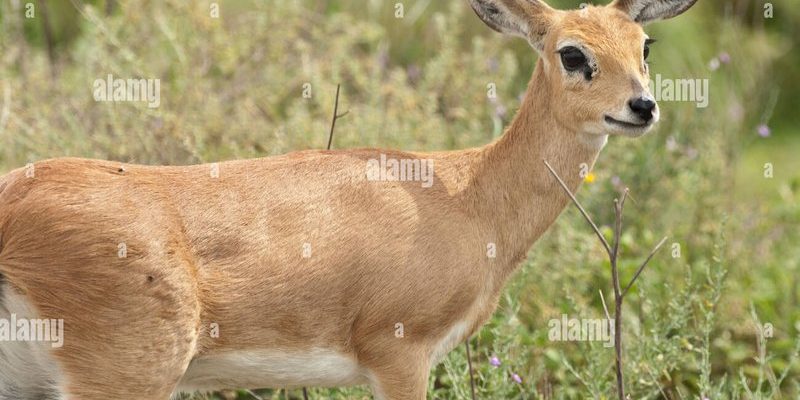
Imagine watching a mini version of a deer, darting through the tall grass, almost like it’s dancing around the predators. But there’s a unique intelligence at play. Oribis have adapted to their environment in remarkable ways—whether it’s how they communicate, their survival tactics, or their social interactions. In this article, we’ll explore just how smart these creatures really are and what that means for their survival in the wild.
Understanding the Oribi’s Intelligence
Oribis are not just instinct-driven; their intelligence shines through their ability to adapt and respond to their environment. Unlike many other grazers, they exhibit behaviors that suggest a certain level of problem-solving and awareness. For instance, oribis have been observed using their keen sense of hearing and sight to detect predators. Here’s a glimpse of what that looks like in the wild:
- Alertness: Oribis remain vigilant, often standing completely still to blend into their surroundings.
- Communication: They have a variety of vocalizations for different situations, such as warning calls to alert others of danger.
So, what does this mean in terms of their cognitive capabilities? Unlike other grazing animals that rely solely on instinct, oribis demonstrate a level of situational awareness. They learn from their experiences, which is a good sign of cognitive function.
Social Behavior and Interaction
Here’s where things get really interesting. Oribis are generally solitary or found in small groups, which might seem counterintuitive for social creatures. But their social interactions are quite sophisticated, particularly during the mating season. Male oribis can be territorial and will showcase their strength through displays of agility and vocalization.
Their social behaviors include:
- Vocal Communication: Males emit calls to establish dominance. These vocalizations can communicate interests or warn rivals.
- Physical Displays: Male oribis often perform impressive leaps to demonstrate fitness to potential mates.
This kind of behavior showcases not only their intelligence but also their understanding of social cues and dynamics—an area many animals struggle with.
Problem-Solving Skills
You might be surprised to learn that oribis display problem-solving skills, especially when it comes to foraging for food. They have a unique way of navigating their habitats to find the best grazing spots. The cleverness comes into play when they encounter obstacles.
For example, if they’re grazing in an area that suddenly feels unsafe, an oribi will quickly assess the situation and decide whether to stay hidden or move to another location. Their ability to weigh options and consider risk versus reward is a sign of advanced cognitive processing.
Here are some traits that highlight their problem-solving skills:
- Adaptation to Environment: They can change grazing locations based on food availability and predator presence.
- Memory of Locations: Oribis remember specific areas where they’ve previously found food or face danger.
This ability to plan and remember is quite impressive for such a small animal.
Learning and Memory in Oribis
Memory is a big part of how animals navigate their world, and oribis are no exception. They learn from their experiences and can adapt their behaviors accordingly. For instance, young oribis often learn from their mothers about safe grazing areas, predator alerts, and even social behaviors.
The learning process in oribis might look something like this:
- Observational Learning: Young oribis watch and mimic their mothers to learn which plants are safe to eat.
- Trial and Error: They may test different routes when navigating their environment, learning which pathways are safer.
This cognitive flexibility is essential for their survival, especially in an environment filled with threats.
Emotion and Bonding
While we often think of intelligence in terms of problem-solving, emotions play a crucial role in how oribis interact with one another. There’s evidence suggesting that these animals show affection and bond with other oribis, particularly during mating seasons and parenting.
Surprisingly, oribis can be seen engaging in behavior that indicates emotional bonding:
- Nurturing Young: Mothers care for their young attentively, teaching them crucial survival skills.
- Social Grooming: They often groom each other, which helps in building social bonds and reducing stress.
This emotional intelligence showcases a level of social complexity that many aren’t aware of when thinking of these small antelopes.
The Role of Environment in Cognitive Development
The environment where oribis live significantly influences their cognitive abilities. They thrive in varied habitats—from savannas to bushlands, which requires adaptability. In these areas, they encounter different challenges that can foster their cognitive growth.
Some aspects of their environment that support cognitive abilities include:
- Diverse Foraging Opportunities: The availability of various plants forces oribis to learn which foods are most nutritious and safe.
- Predator Presence: The constant threat of predators like lions or wild dogs compels oribis to be alert and responsive, sharpening their instincts.
These factors contribute to a complex interplay of intelligence and behavior that enables oribis to survive and thrive in the wild.
So how smart is an oribi? Honestly, they are far more intelligent than many people realize. With their keen problem-solving skills, social bonds, and adaptability to changing environments, oribis are outstanding examples of how intelligence manifests in the animal kingdom. They remind us that intelligence isn’t just about brain size; it’s about how well an animal can navigate the challenges of its environment and form connections with others.
Next time you come across this charming little antelope in documentaries or wildlife articles, remember that there’s a lot more happening behind those big, expressive eyes. Oribis, though often overlooked, are a testament to the wonders of nature’s design, showcasing a blend of intelligence and beauty that deserves our admiration.

